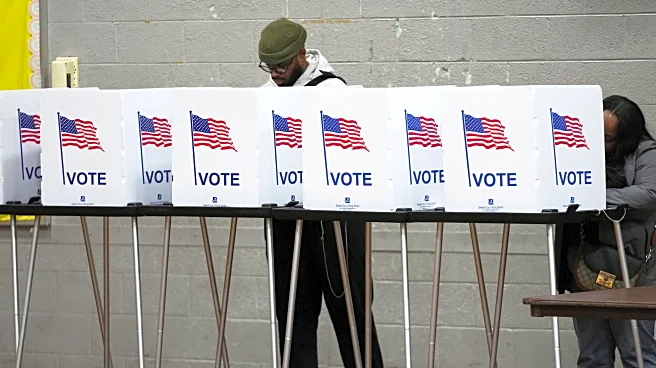What's Happening?
The Financial Conduct Authority (FCA) has proposed changes to contactless card payment limits, potentially allowing transactions to exceed the current £100 cap and become unlimited. This move aims to align card payments with digital wallet transactions, which currently have no restrictions. The proposal comes despite concerns about theft and fraud, as higher-value contactless payments could be targeted by criminals. The FCA assures that card providers will only permit higher-value transactions for low-risk scenarios and will bear the responsibility for any fraudulent activities. The proposal follows a series of gradual increases in the contactless limit since its introduction in 2007, with the most recent increase to £100 occurring in October 2021. The FCA's analysis suggests that raising the limits could increase fraud losses, but improvements in detection and prevention systems are expected to mitigate these risks.
Why It's Important?
The proposed changes to contactless payment limits could significantly impact consumer behavior and the retail industry. By allowing higher-value transactions without the need for a PIN, the FCA aims to reduce payment friction and reflect rising prices over time. This could lead to increased convenience for consumers, particularly in high-volume environments like supermarkets and restaurants. However, the potential for increased fraud poses a risk to both consumers and financial institutions. Banks and card providers will need to enhance their fraud prevention systems to ensure transactions remain secure. The proposal also highlights the growing trend of mobile payments, which offer additional security features such as thumbprints or face ID, and are increasingly popular among younger consumers.
What's Next?
If approved, the new contactless payment limits could be implemented early next year. Banks and card providers will need to update their systems to accommodate higher-value transactions and ensure robust fraud prevention measures are in place. Consumers may be given the option to set their own contactless limits, providing flexibility and control over their spending. The FCA expects that any changes will be made thoughtfully, with security as a priority. As the proposal progresses, stakeholders including banks, retailers, and consumer advocacy groups are likely to weigh in on the potential benefits and risks associated with unlimited contactless payments.
Beyond the Headlines
The shift towards unlimited contactless payments reflects broader changes in consumer payment preferences and technological advancements. As digital wallets and mobile payments become more prevalent, traditional card payment systems must adapt to remain competitive. This evolution raises questions about the future of cash transactions and the role of physical cards in a digital economy. Additionally, the proposal underscores the importance of balancing convenience with security, as financial institutions navigate the challenges of preventing fraud while enhancing customer experience.










